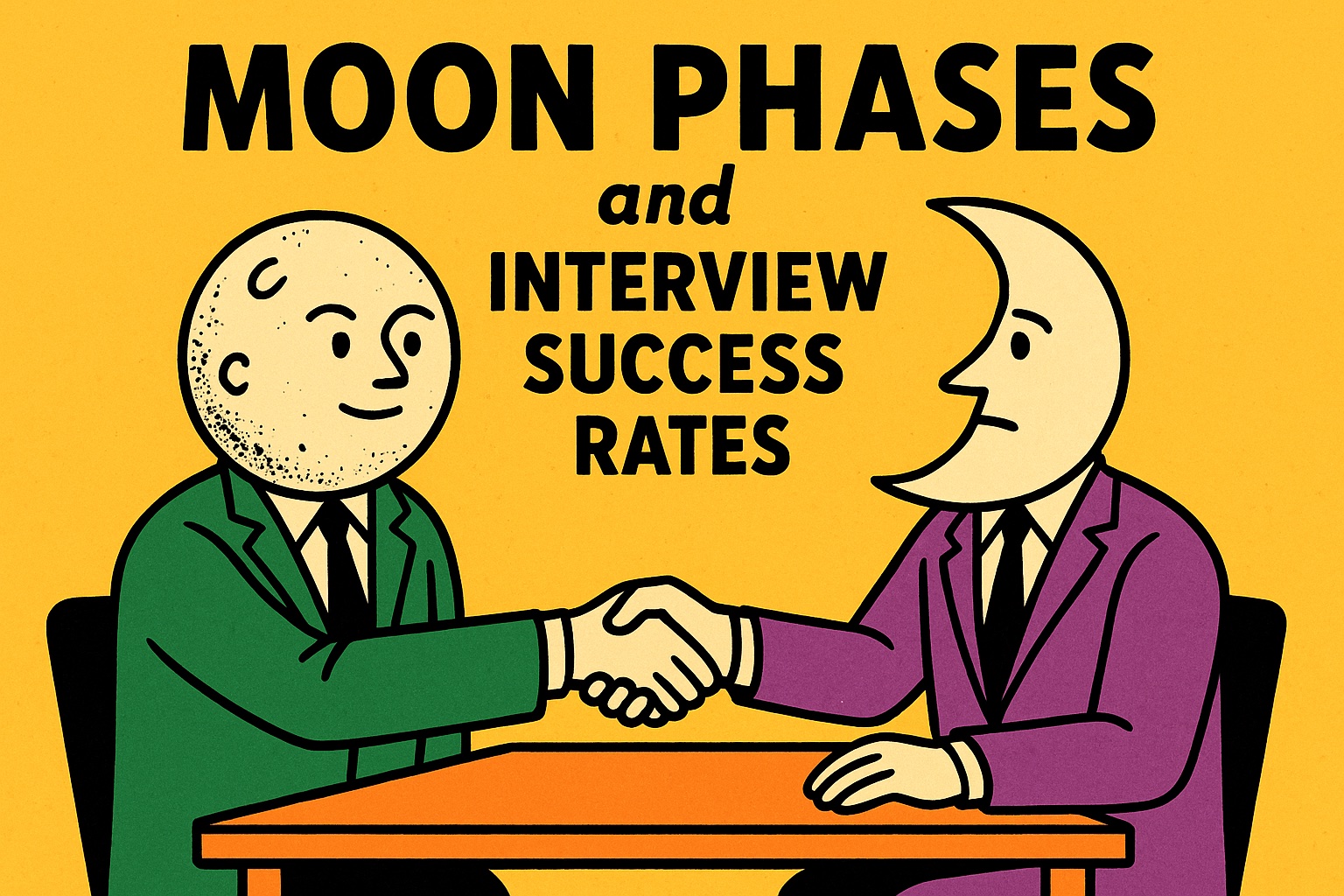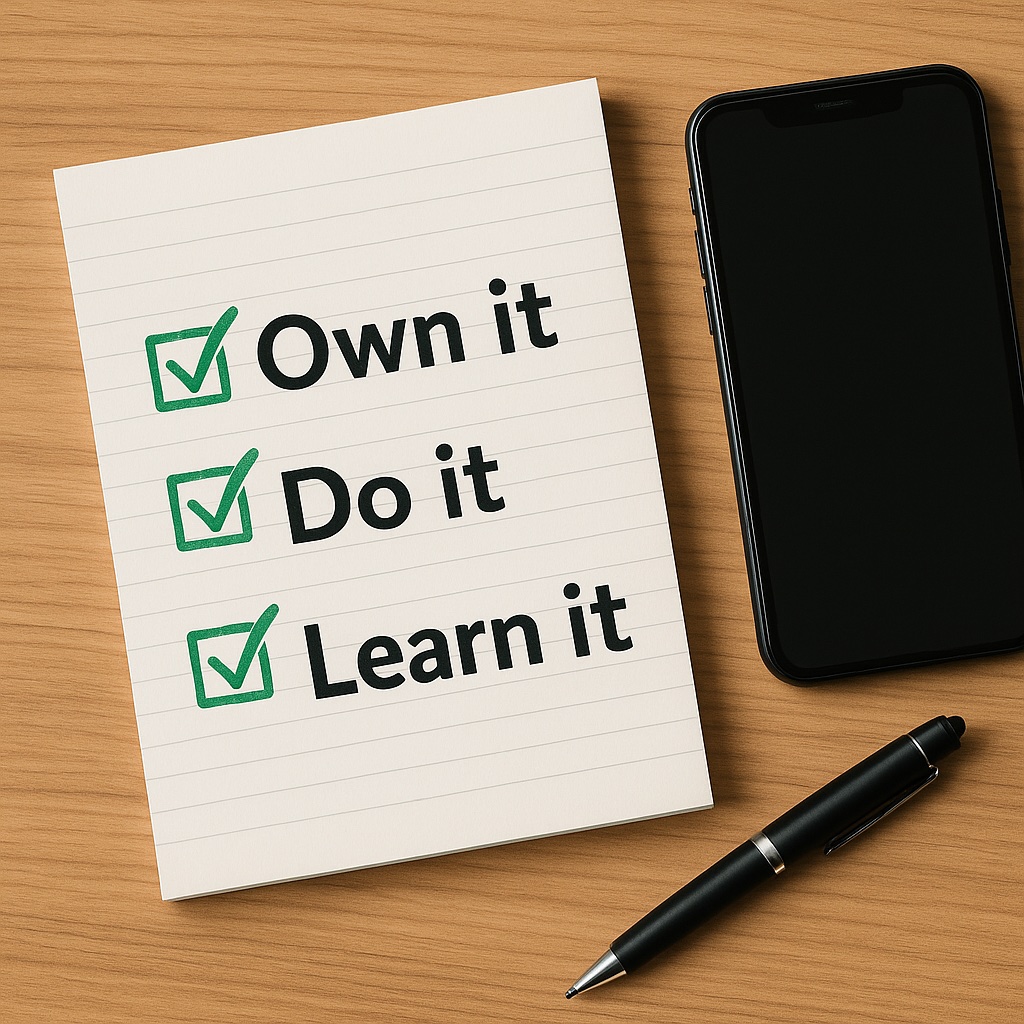Moon Phases and Interview Success Rates. Myth, Mechanisms, and What Actually Moves the Needle

What the evidence said
Large reviews across hospitals and psychiatry did not find reliable links between the full moon and human behaviour such as admissions or mental health crises. When researchers re-analysed datasets with better controls, the apparent lunar effect disappeared.
Sleep was the one area with mixed findings. A small lab study reported shorter sleep and lower melatonin near the full moon. Later field work showed people sometimes fell asleep later and slept a bit less just before the full moon. Effects were modest and inconsistent across settings.
Some finance papers reported lower stock returns around full moons than new moons. Interesting, but controversial. Not proof of a lunar force changing decision quality. More likely this reflected timing and behavioural confounds.
Why the moon still felt powerful
- Availability bias. Full moons were noticeable, so chaotic days got labelled as moon days. Quiet days during other phases were forgotten.
- Illumination and context. In outdoor or dim settings, moonlight changed activity timing. In modern offices, controlled light dominated.
- Attribution comfort. Blaming the sky was easier than fixing prep, process, or evaluation quality.
What actually moved interview success
- Job-relevant evidence. Work samples, structured questions, anchored rubrics, and calibrated scoring.
- Interviewer quality. Training to separate signal from charm, to probe well, and to score before discussion.
- Candidate readiness. Targeted practice on the real decision points, not generic Q and A.
- Timing within the day. Late afternoon decision fatigue increased noise. Scheduling and breaks helped.
- Sleep and alertness. Tired panels and sleep-deprived candidates performed worse, no matter the moon.
If you wanted to test it in your firm, here was a clean design
Design
- Outcome was pass or fail to next stage.
- Predictors included role, panel, candidate experience, interview format, time of day, day of week, month.
- Add indicators for a pre-full-moon three-night window, the full-moon night, a post-full-moon three-night window, and the analogue around the new moon.
- Controls included panel load that day, panel size, and strict rubric use.
Analysis and decision rule
- Fit a logistic model with clustered standard errors by requisition.
- Report marginal effects and confidence intervals.
- If moon variables were not significant after controls, publish the null and move on.
- A lunar effect below a few percentage points was operationally irrelevant compared with gains from interviewer training or better work samples.
Practical playbook that helped candidates every week
- Sleep for performance. Treat the night before like race day. Screen dim at 21:00, caffeine cut-off eight hours prior, light dinner, and a consistent wind-down. If you tend to sleep later near a full moon, block light with curtains and an eye mask.
- Own the first ten minutes. Open with a tight value statement matched to the job. Move straight to a brief work sample or artefact.
- Eliminate luck with structure. Ask for format in advance. Offer a short agenda with examples tied to success criteria.
- Rehearse under constraints. Each story in two minutes, plus a 30 second variant.
- Control your environment. For virtual, lock lighting, camera, and audio the day before. For on-site, arrive early and use a 4 count inhale, 6 count exhale for two minutes before start.
- Guard attention. Answer first, then show. One slide per example. Keep dashboards simple, with deeper layers ready on request.
For hiring teams. Replace superstition with hard edges
- Use structured interviews only. One question, one rubric, one score per interviewer, then discuss.
- Blind calibration. Score independently before debrief.
- Add a two item evidence check to every debrief. Did we see this person do X and Y that predict performance.
- Track pass rates by panel, time of day, and stage. Fix weak spots.
- Stop rescheduling because of a full moon. Reschedule if your panel is buried under five back to back calls after 15:00.
The punchline
The moon made a great story. Interview outcomes were a system. Improve the system and lunar phases became noise. Focus on sleep, structure, and evidence. That was how candidates won and teams hired better.
Quick answers
- Do moon phases change interview pass rates
- No solid evidence showed a direct hiring effect.
- What actually moves pass rates fast
- Structured interviews, calibrated rubrics, work samples, and rested panels.
- Should I avoid a full moon interview slot
- No. Prioritise sleep, preparation, and a clean environment instead.





